Lorna Salzman has the chops to be an outspoken critic of many in the modern environmental movement. She played a key role in the early days of Friends of the Earth alongside David Brower (the first executive director of the Sierra Club), beginning a 40-year career as an environmental activist, writer, lecturer and organizer. A contender for the Green Party presidential nomination in 2004, Salzman is an iconoclast in every sense of the word. In this 2010 interview we hear…
Tag Archives sustainability
How big is your ecological footprint? Probably bigger than you think. After all, out of sight, out of mind. As an originator of ecological footprint analysis, population ecologist William Rees knows a thing or two about our impact on the planet. In this interview he provides some fascinating, and surprising insights. This is one of our best episodes from season one. We're sharing these while we take a break between seasons 2 and 3. Help ensure there IS a season…
“I don’t think there’s a lot of excuses, frankly, for not doing the right thing.” Anishinaabe orator, author, economist and activist Winona LaDuke doesn’t mince words in her quest to light a path for us to “hang around another thousand years.” Winona observes that we are “doing things only addicts would do,” including sedating ourselves with a lot of information and television. “Your ecosystem seems to be your mall,” LaDuke tell us. Are you enjoying tapping the brightest minds on…
“Gross Domestic Product has now become a fetish,” according to economist Raj Patel. Many undesirable things end up adding to GDP: wars, disease, and environmental destruction, for example. Meanwhile GDP fails to measure many desirable indicators of community health. It has led us to live in an ecologically and socially unsustainable fashion. Are you enjoying tapping the brightest minds on the planet? Want to continue to have this kind of access? Join the community of Conversation Earth fans pitching in…
Our 41st episode is a retrospective of Seasons 1 and 2 of Conversation Earth. In this episode we turn the table, as co-producer Kaitlyn Hickmann interviews host/creator Dave Gardner. The two share highlights from previous episodes and discuss the joys and challenges of producing the series. Please comment below to let us know your favorite moment from the series. Thanks so much for listening, sharing and supporting this series. This episode serves as a great sampler, giving you a taste…
Are we all “bystanders” when it comes to responding rationally to the serious environmental crises faced by our civilization? How is our behavior shaped by that of those around us? We’ve all heard of “the bystander effect” in which a large number of people stand by and do nothing to help someone in trouble. According to social norms theory, misperceptions of the attitudes or behaviors of our peers can cause the expression of problem behavior and the inhibition of healthy…
Human civilization can thrive while living within sensible limits imposed by a finite system. “Renegade" economist Kate Raworth manages to tell the truth about what we’re getting wrong in economics, while at the same time inspiring activism and optimism. In this conclusion of a two-part interview, Kate finishes her list of seven fundamentals to achieving a healthy 21st century economy. Her recently published book, Doughnut Economics: Seven Ways to Think Like a 21st-Century Economist, was called “brilliant, thrilling and revolutionary”…
A scaled-up local food system may be the only way we can feed ourselves as we weather the storm of climate change. Until now, CSAs, urban gardens and farmer’s markets have been the face of the local food movement. But Michael Brownlee, author of The Local Food Revolution: How Humanity Will Feed Itself in Uncertain Times, tells us this is not nearly enough. In this episode, the first of a two-part conversation, Brownlee shares how global industrial agriculture is failing…
Most scientists agree the current level of human population, in combination with present living arrangements, is damaging our ecosystems. But doing something about overpopulation is not high on public policy lists. It’s rarely discussed in the media or over coffee with friends. Why? Population Media Center President Bill Ryerson discusses the obstacles preventing faster progress on solving the overpopulation problem, or even admitting there is one. This is the second part of an April 2017 interview. Bill Ryerson has worked…
How and why did our society come to value economic growth so highly that we pursue it at the risk of our long-term survival? For some time scientists have warned that human civilization is living beyond the ecological means of our planet. Yet our commitment to economic growth is unwavering. Australian writer Kerryn Higgs chronicled this triumph of denial over science in her book, Collision Course: Endless Growth on a Finite Planet. This book is impressively researched. She shares her…

